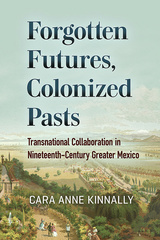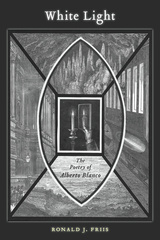236 pages, 6 x 9
Paperback
Release Date:29 Mar 2024
ISBN:9781684485192
Hardcover
Release Date:29 Mar 2024
ISBN:9781684485208
Science Fusion in Contemporary Mexican Literature
Bucknell University Press
Science Fusion draws on new materialist theory to analyze the relationship between science and literature in contemporary works of fiction, poetry, and theater from Mexico. In this deft new study, Brian Chandler examines how a range of contemporary Mexican writers “fuse” science and literature in their work to rethink what it means to be human in an age of climate change, mass extinctions, interpersonal violence, femicide, and social injustice. The authors under consideration here—including Alberto Blanco, Jorge Volpi, Ignacio Padilla, Sabina Berman, Maricela Guerrero, and Elisa Díaz Castelo—challenge traditional divisions that separate human from nonhuman, subject from object, culture from nature. Using science and literature to engage topics in biopolitics, historiography, metaphysics, ethics, and ecological crisis in the age of the Anthropocene, works of science fusion offer fresh perspectives to address present-day sociocultural and environmental issues.
Science Fusion, a criticism of the Enlightenment colonial notion that separates science and the humanities, begins with an engaging study of people passing through the science tunnel in the La Raza metro station in Mexico City. As Chandler draws on ecocriticism, science fiction, and the history of science in Mexico, his dynamic work shows that our experience of the world is an interconnected one, made up of matter, and how we interpret it.
Brian Chandler expertly navigates four decades of literary production to show how Mexican authors have reflected on the interconnectedness between science and culture. Chandler’s book reinvigorates literature and science as a field in the Latin American context, and it is a must-read for anyone interested in the entanglements between the sciences and the humanities.
In this tightly argued book, Brian Chandler assesses contemporary Mexican literature that draws from, and challenges, scientific theories. Chandler counters the tendency to consider literary engagements with science solely through the lens of science fiction, demonstrating instead how diverse forms of literary ‘science fusion’ problematize the purported human/nonhuman divide.
This engagingly written and meticulously researched study of science in contemporary Mexican literature answers and asks many questions about history, the more-than-human world, automation, extractionism, and other key issues in Mexico today. Chandler’s study opens new lines of inquiry into the world of some of the most relevant writers in recent Mexican poetry (Alberto Blanco), drama (Sabina Berman), and fiction (the Crack) and introduces us to the work of some younger writers as well.
Brian T. Chandler is a professor of Spanish at the University of North Carolina Wilmington. His work has been published in edited volumes and journals such as Romance Quarterly, Latin American Literary Review, Hispania, and Chasqui.
A Note on Translations
Introduction: Entangling Science, Literature, and Culture in Mexico
1 Entangled Matter: The Science Poetry of Alberto Blanco
2 Quantum Mechanics, History, and the Question of Scale in Volpi’s En busca de Klingsor
3 Automatons, Androids, and Androcentrism in Padilla’s El androide y otras quimeras
4 A Science of Good and Evil: Sabina Berman’s Darwinian Ethical Turn
5 In Search of a New Language: Autopoiesis and the Anthropocene in Maricela Guerrero’s El sueño de toda célula
6 Dimensions of Embodied Experience: Space and Time in Elisa Díaz Castelo’s Principia
Conclusions: Knowing and Belonging in an Entangled Universe
Acknowledgments
Notes
Bibliography
Index
Introduction: Entangling Science, Literature, and Culture in Mexico
1 Entangled Matter: The Science Poetry of Alberto Blanco
2 Quantum Mechanics, History, and the Question of Scale in Volpi’s En busca de Klingsor
3 Automatons, Androids, and Androcentrism in Padilla’s El androide y otras quimeras
4 A Science of Good and Evil: Sabina Berman’s Darwinian Ethical Turn
5 In Search of a New Language: Autopoiesis and the Anthropocene in Maricela Guerrero’s El sueño de toda célula
6 Dimensions of Embodied Experience: Space and Time in Elisa Díaz Castelo’s Principia
Conclusions: Knowing and Belonging in an Entangled Universe
Acknowledgments
Notes
Bibliography
Index





